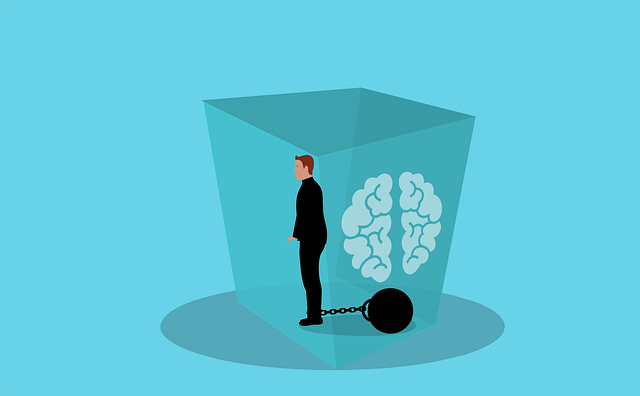Patients with health anxiety, hypochondria, or illness anxiety disorder worry excessively about their health and frequently worry that they are sick or will get sick. Concern for one’s health is normal, but for people who suffer from health anxiety, these worries can take over and get in the way of everyday living. Learning about health anxiety, developing a plan to deal with it, and getting support from a professional are all important steps toward overcoming this disease. Managing and conquering health anxiety is the focus of this article.
Table of Contents
ToggleUnderstanding Health Anxiety
Health anxiety often stems from a heightened sensitivity to bodily sensations, which are then misinterpreted as signs of a serious illness. This can lead to:
- Excessive Checking: Frequently checking your body for signs of illness, such as lumps or changes in appearance.
- Constant Reassurance Seeking: Repeatedly asking doctors or loved ones for reassurance that you are not ill.
- Avoidance Behaviors: Avoiding situations, information, or activities that might trigger health-related fears.
- Catastrophic Thinking: Assuming the worst-case scenario about minor symptoms, such as believing a headache is a sign of a brain tumor.
Recognizing these patterns is the first step toward overcoming health anxiety.
1. Educate Yourself About Health Anxiety
Gaining a clear understanding of health anxiety and its symptoms can greatly enhance one’s ability to cope. Discover the signs of worry and how they can resemble those of a physical ailment. Anxiety can manifest physically in a variety of ways, and it’s important to be aware that these symptoms can be easily confused for more serious medical conditions. Learning to recognize the signs of legitimate health problems and those caused by anxiety can help alleviate some of your symptoms.
2. Challenge Your Thoughts
Health anxiety is often fueled by irrational thoughts and catastrophic thinking. To overcome this, practice cognitive restructuring, a technique used in cognitive-behavioral therapy (CBT):
- Identify the Thought: When you notice yourself worrying about your health, write down the specific thought causing anxiety.
- Examine the Evidence: Consider the evidence for and against the thought. Is there a logical reason to believe you are seriously ill, or is it more likely anxiety?
- Challenge the Thought: Replace the irrational thought with a more balanced, realistic one. For example, instead of thinking, “This headache means I have a brain tumor,” reframe it as, “Headaches are common and usually not serious. It’s likely due to stress or dehydration.”
3. Limit Health-Related Research
When worrying about one’s health, the internet may be both a blessing and a curse. It has the potential to enlighten you, but it also has the potential to make you anxious by making you think about the worst-case situations. When looking up symptoms online, try to stick to reputable sources and limit your online health research. To avoid being addicted to searching, restrict the amount of time you spend researching.
4. Practice Mindfulness and Relaxation Techniques
When you practice mindfulness and relaxation techniques, you can alleviate both the mental and physical manifestations of worry. You can alleviate stress and maintain a sense of groundedness in the here and now by practicing techniques like meditation, progressive muscle relaxation, and deep breathing. One strategy for overcoming health anxiety is to practice mindfulness, which teaches you to pay attention to your internal experiences without attaching any value judgments.
5. Focus on Positive Health Behaviors
Instead of fixating on potential illnesses, focus on behaviors that promote overall well-being:
- Regular Exercise: Physical activity can help reduce anxiety and improve your mood. Aim for at least 30 minutes of moderate exercise most days of the week.
- Healthy Diet: Eating a balanced diet can improve your energy levels and overall health, reducing the physical symptoms that might trigger anxiety.
- Adequate Sleep: Ensure you are getting enough rest, as sleep deprivation can exacerbate anxiety and make it harder to manage stress.
6. Seek Professional Help
If health anxiety is severely impacting your quality of life, it is important to seek professional help. A mental health professional, such as a psychologist or counselor, can work with you to develop coping strategies. Cognitive-behavioral therapy (CBT) is particularly effective in treating health anxiety. In some cases, medication may also be prescribed to help manage anxiety symptoms.
7. Stay Connected with Supportive People
Social support plays a crucial role in managing anxiety. Stay connected with friends and family who understand your struggle and can offer reassurance without enabling your anxiety. Talking about your fears with someone you trust can help put them into perspective.
8. Gradual Exposure to Fears
Avoidance behaviors can reinforce health anxiety. Gradual exposure to the things you fear can help desensitize you over time. For example, if you avoid going to the doctor out of fear of receiving bad news, start by making small steps toward visiting the doctor. Over time, you can work on gradually confronting other fears related to health anxiety.
Conclusion
To conquer health anxiety, one must be patient, persistent, and ready to confront illogical thinking and actions. You may lessen the impact of health anxiety by learning more about the disease, doing things like practicing mindfulness and cognitive restructuring, and getting support from a professional when you need it. Always keep in mind that there are others who understand the challenges you face. By taking the necessary steps, you may conquer your health anxiety and live a life free from its grip.


